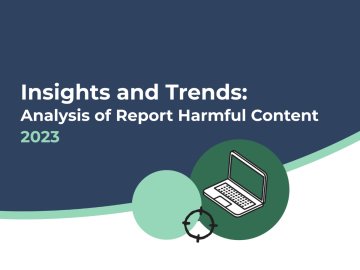The new school year is at least 3 weeks in now and I can’t help but wonder how many newsletters/leaflets/ written notes have been circulated between school and home already. Furthermore, how many of these little pockets of information have made their way to landfill rather than the green boxes guaranteeing them an extended (and I like to think happy) lifespan.
Consider this all too familiar scenario: a crumpled up newsletter is found in a child’s bag covered in a sticky substance from the water bottle left next to it which was open (of course) and, as such, has decorated everything in sight in goo! And yes, that newsletter had crucial information about an upcoming fancy dress day, eventually resulting in a panicked parent sticking some toilet rolls to their child and throwing over some glitter for good measure in haste on said day.
Now, in the interest of any parent ever who’s been in that situation and, let’s not forget the children who’ve suffered the humiliation of tales regaled years and years after (because of course those stories are dinner party GOLD), schools everywhere are embracing the use of social media to share key information with their children’s families. With more audiences being reached and less school paper ending up in landfill, schools are definitely onto a winner. However, in the same way that you can’t guarantee that there will be no more USS’s (Unidentifiable Sticky Substances) in parent’s lives as a result of this change in communication, you can’t always predict the variety of surprises using social media can throw up in school.
What you can do though is plan, prepare for the worst and have robust systems in place to help unpick any peculiar curve balls thrown your way…
Think about what information you’re trying to get across and to what audience
This will help you decide whether a public or private platform is more appropriate; whilst sharing the school’s latest blog might be suitable for a wider audience, a rehearsal schedule with locations, times and children’s parts in the upcoming school production is definitely not one for the public arena.
Take the time to do the groundwork
Run the necessary risk assessments and make sure your policies on online safety, acceptable use and data protection are up to date and include your use of social media. These are the crucial foundations which are needed to fall back on when an issue arises and, if not in place and robust enough, can lead to some tricky situations to sort out.
Do your market research
Check out the local area online and build your audience by discovering where parents interact already. Are there local news/ culture pages or groups that parents get involved with for instance? Why not like/ follow them too. Maybe this will give you another channel to disseminate information through to get to parents that are otherwise hard to reach.
Get everyone involved
Like any new idea; to work successfully, everyone needs to be on board. A teacher may come up with a strategy independently but, even with the best intentions in the world; they cannot execute this on their own. They need the backing of their senior management team and the drive of a whole school approach to effect positive change in a school.
Who’s the ‘key holder’
Think about who administrates the social media accounts you’re using and their suitability to the role. Just because it’s online and it’s to do with ‘pooters’, doesn’t mean this job is best suited to the School Network Manager. In fact they’d probably be quite surprised that parental engagement fell within their job description! Consider this, if a person came into school with a cricket bat threatening to smash up stuff, would you send them to the PE department for dealing with? Thought not! Now we’ve expelled that myth, could the admin responsibility for social media accounts be shared more effectively in your school?
Ask for help
Has something happened on your school social media account that you’re not sure how to deal with? Contact the Professional Online Safety Helpline for further advice and support. Open from 10am – 4pm Monday – Friday, practitioners will help professionals unpick and resolve issues wherever possible.






